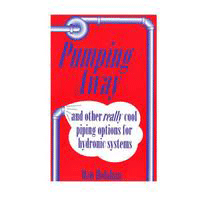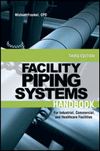PVF Outlook For 2003
Carbon Steel Pipe
Total import/domestic tubular tonnage was down more than 10% according to 2002 estimates, and was expected to drop slightly in 2003 from 12.6 million tons to 12.5 million tons.Welded pipe prices have undergone a roller coaster ride, dropping to their lowest levels in 20 years in 2001, then zooming upward in 2002 by more than 60% in some cases owing to the Section 201 tariffs, but starting to "crater" in mid-fourth quarter of last year.
OCTG looks to get a boost from rising oil prices, with crude trading at a 23-month high last December. Line pipe orders, however, will "be in the doldrums," owing to financial troubles in the gas energy sector.
Pipe mills operated at a dismal 29% capacity during December 2002, reported IPD.
Pricing on domestic seamless pressure tube continues to escalate.
CW Pipe: CW pipe prices may be "under attack" after surging by 6% to 12% over the past year and a quarter, due to new smaller pipe sizes being added by ERW mills.
ERW: Prices have retreated from the 201 run-ups last year, last selling in the low $300sNT versus $220/225NT in 2001. ERW tariffs are subject to a mid-review after 18 months (Sept. 2003).
Hedge buying throughout 2002 has left some distributors with excess inventory.
One analyst from J.P. Morgan predicted President Bush may scrap the 201 tariffs after the World Trade Organization declares them illegal. (Editor's Note: This would enable the President to return to his free-trade ideological roots while at the same time saying, "I tried," to the domestic steel industry.)
Seamless Pipe: Imports and soft demand have caused prices to drop 2-3% in the previous 90 days, although the first quarter of 2003 started with a small upswing, mainly from OCTG products.
Fittings
Malleable Iron & Cast Iron Fittings: Domestic consumption is down 8-18%, depending on markets and geography. Products from China continue to drive competition, with three duties leveled last September.The final cast iron ruling was slated for around press time, with existing duties expected to be doubled. May 2003 is the anticipated date for a preliminary ruling in the malleable iron case, with a final ruling in September 2003. IPD predicts a 148% duty levied.
Domestic Carbon Steel Nipples: Business is flat to down 5%. Domestic manufacturers have consolidated in the face of threats from Chinese and Mexican producers.
Domestic Carbon Steel Weld Fittings & Flanges: Domestic demand remains flat. Recent activity has seen fittings from Korea, Taiwan and Malaysia, and flanges from India, selling for as much as 30% below domestic prices. Weldbend, the only remaining domestic producer, has expanded capacity of fittings and flanges up to 48-in.
Grooved Fittings: Despite the slump in non-residential construction, demand for grooved fittings did not fall off very much. One manufacturer reported market share growth for the year.
Demand is expected to remain solid for the first half of the year, with the potential for a greater increase in the second half in line with an expected upturn of the American economy.
Forged Steel Fittings: The alloy category of this product sector is notoriously difficult to predict. Manufacturers normally get their price if they have material on hand or quick delivery, and imports do not play a significant role, according to the IPD.
Forged steel carbon fittings are still dominated by domestic manufacturers (85%), although the total U.S. market has been shrinking about 10% a year for the past two years due to the shrinkage in manufacturing.
Forged steel stainless fittings were exempted from 201 tariffs and the imports continue to dominate the market based on price.
Branch Connections: With WFI being merged into Bonney Forge, there are now four domestic suppliers of this engineered product. A price increase of about 4.5% went into effect in early February.
Stainless
The Specialty Steel Industry of North America shows that total stainless steel imports continue to eat away at almost one-quarter of the U.S. market, despite tariffs that took effect in March 2002. While shipments for specialty steel account for only 2% of all steel shipped, annual revenues of about $8 billion account for 14% of the total value of all steel shipped.Stainless Steel Welded Pipe: Several manufacturers predict price increases of 3-6% in the first quarter. Lead times are averaging 4-8 weeks on commodity items, 8-12 weeks on non-stock items.
Stainless Steel Fittings: Buttweld fitting price increases from last year's fourth quarter have held. Stainless 150 fittings are predicted to increase 3-5% this quarter from one manufacturer and no change from another. Stainless pressure fittings are not expected to change in price during the first quarter.
Stainless Flanges: Manufacturers predict no price changes to perhaps 1-3% increases. Imports are increasing from Korea, Italy and Mexico. Lead times are 3-4 weeks for commodity items, 6-8 weeks for non-stock material.
Looking for a reprint of this article?
From high-res PDFs to custom plaques, order your copy today!





